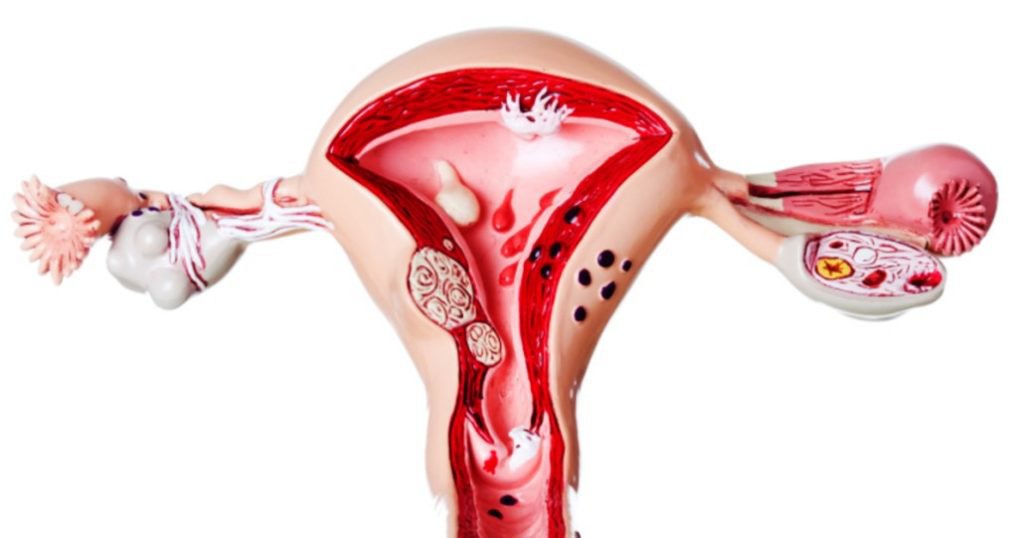Artificial insemination (IVF) in patients with endometriosis
Up to half of women with endometriosis will have trouble getting pregnant. Fertility also depends on age and severity of the disease. However, people with endometriosis can achieve motherhood through surgery or IVF treatment.
1. What is endometriosis?
Endometriosis is defined as the presence of endometrial-like tissue on the outside of the uterus and triggers a chronic inflammatory response. The problem with having endometrial tissue in other areas of your body is that the tissue will break down and bleed just like in your uterus. But the blood has nowhere to go. Over time, this blood and tissue develops into cysts, scar tissue, and adhesions. This is the scar tissue that holds the organs together. Most endometriosis treatments aim to prevent ovulation. An example is taking oral contraceptives. When you are trying to get pregnant, you will stop taking these treatments.
Some women with endometriosis will have symptoms, while others have no symptoms at all. The most common sign of endometriosis is pain, including pelvic pain and strong cramping. Infertility can also be a symptom and side effect of endometriosis.
2. Endometriosis and the risk of infertility
The main concern many women have after being diagnosed with endometriosis is its impact on current or future fertility. According to research published in the Journal of Assisted Reproductive Medicine and Genetics, an estimated 30% to 50% of women with endometriosis will experience infertility. Some studies have found that infertile women are six to eight times more likely to develop endometriosis than those who do not. The risk of infertility due to endometriosis may be due to the following factors:

Có tới một nửa số phụ nữ bị lạc nội mạc tử cung sẽ gặp khó khăn khi mang thai
Pain from endometriosis can interfere with fertility due to the fact that sex can be too painful to perform. Pain during sex does not interfere with your ability to ovulate or fertilize; however it makes the sexual act more difficult. More pain doesn't mean you'll have a harder time getting pregnant than women with no pain. Women with endometriosis are often given birth control pills to relieve painful symptoms. Of course you can only get pregnant while you stop taking the pill. In cases of moderate to severe endometriosis, surgery may be required to remove endometrial lesions or cysts. Surgery can relieve pain, but repeated surgery can cause a buildup of scar tissue (adhesion) that increases the risk of infertility. In very severe cases of endometriosis, you may be advised to remove the uterus, ovaries, or part of the ovaries. This will impact your future fertility. Therefore, before having surgery, consult with your doctor about your future fertility plans and make sure you are fully informed of all the risks and benefits of surgery. So do women with endometriosis have a chance to get pregnant naturally? The answer is yes. Of course, you need to consult a specialist about your specific case. But endometriosis doesn't mean you'll be infertile. If endometriosis is diagnosed, the patient will usually be advised to try to conceive naturally for six months (instead of the 12 months recommended for other women). If you are unable to conceive within this time frame, you should see an assisted reproduction specialist.
3. Artificial insemination in patients with endometriosis
Currently applied assisted reproductive methods for endometriosis patients include intrauterine insemination (IUI) and in vitro fertilization (IVF). If fertility drugs and intrauterine insemination have not been successful, in vitro fertilization is the recommended next step. In vitro fertilization is considered the most effective method overall. However, it is also an invasive procedure and is quite expensive.
Depending on the circumstances, in vitro fertilization may be the first choice of treatment for women whose fertility is significantly reduced. You may be advised to skip IUI and go straight to IVF if you:
Have stage 3 or 4 endometriosis Age over 35 Have multiple risk factors for infertility (such as male infertility or low ovarian reserve) ) Desire to do in vitro fertilization because there is enough money and acceptance of invasive procedures. In vitro fertilization is a method of using eggs from you and sperm from your husband/partner. The egg is then fertilized outside the body and implanted in the uterus. The success rate of IVF is 50% for women who do not have endometriosis. But many women with endometriosis have had successful pregnancies with IVF treatments. IVF is usually recommended for women with moderate to severe endometriosis, or for women who have not responded to other treatments.

Dấu hiệu phổ biến nhất của lạc nội mạc tử cung là đau
Vinmec IVF Reproductive Center is the address of infertility - infertility treatment chosen by many couples. So far, the Center has performed fertility support for over 1000 infertile couples with a success rate of 45%-50%. This rate is equivalent to developed countries such as the UK, USA, Australia,...
The center gathers a team of leading experts in the field of obstetrics and gynecology nationally and internationally, trained in centers leading in the world such as in the US, Singapore, Japan, Australia and famous fertility centers in the world.
Để đặt lịch khám tại viện, Quý khách vui lòng bấm số HOTLINE hoặc đặt lịch trực tiếp TẠI ĐÂY. Tải và đặt lịch khám tự động trên ứng dụng MyVinmec để quản lý, theo dõi lịch và đặt hẹn mọi lúc mọi nơi ngay trên ứng dụng.
Reference source: Verywellhealth.com; Healthline.com
Bài viết này được viết cho người đọc tại Sài Gòn, Hà Nội, Hồ Chí Minh, Phú Quốc, Nha Trang, Hạ Long, Hải Phòng, Đà Nẵng.






